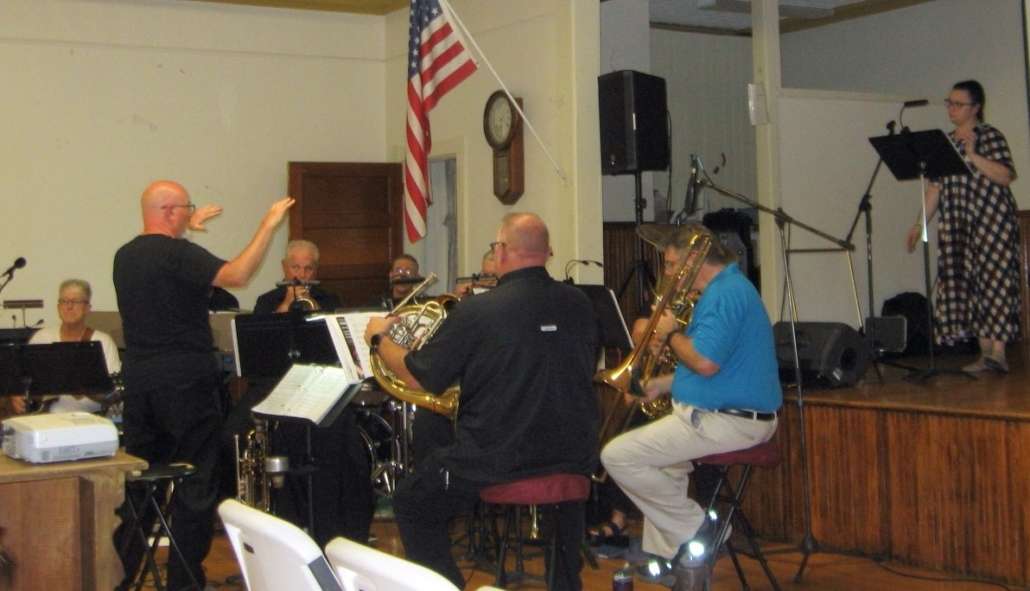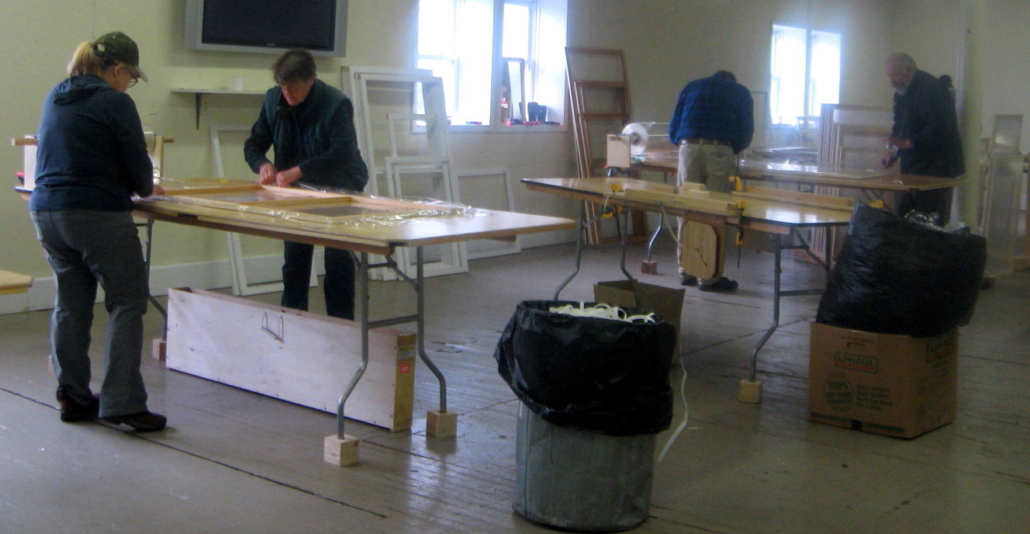
Photo by Roberta Barnes
When was the last time you enjoyed a live concert put on by experienced, highly-skilled musicians and singers for a worthy cause?
Friday evening, August 16, a concert upstairs in the Windsor Town Hall was a musical tribute paid to the life and music of Nat King Cole. The enjoyable music the Downeast Brass Quintet played is part of this country’s musical history.
This concert, with superb music and narrations on the life of Nat King Cole, born in 1919, was free. The donations jar on the table near the entrance was for the Maine Lung Association. The musicians donated their time and talents. This was an excellent way to celebrate the American Lung Association’s 120th anniversary.
Nat King Cole (Nathaniel Adams Cole) the American singer, jazz pianist, and actor who made television history in 1956, unfortunately, was a smoker. In 1965 at the height of his stardom, when he was only 45 years old, lung cancer ended his life.
The concert began at 7 p.m., but musicians were present doing sound checks around 6 p.m. Andy Foster, on trumpet and sang, Peter Suart, on trumpet, Dwight Tibbetts, on trumpet and piano, Rick Gadway, on trumpet, Loren Fields, on French Horn and sang. Michael Peterson, on trombone, Erica Scarano, on tuba, Andrea Buckland, on banjo and guitar, Richard LaChance, on percussion, and Dakota Ryder, who sang, made up the group of skilled and experienced musicians.
The concert began with background piano music while Marianne Tibbets gave the first of several short narrations on the life and career of Cole. She also managed the slides appearing on a large screen that related to the narrations she gave.
One of the first songs in the concert, Straighten up and Fly Right, written by Nat King Cole and Irving Mills, became part of the soundtrack in a 1943 movie and was the first of vocal hits for the King Cole Trio.
Each narration was followed by songs selected from Cole’s hits. Most of those attending could feel their body naturally moving, if only a hand or foot, with rhythm of the music that filled the town hall. Each song was followed with smiles, clapping by those attending, and at the end of the two-hour concert a standing ovation.
At some time you no doubt have heard the phrase “Route 66”. One of the songs played was, Get Your Kicks on Rte. 66, which became the iconic American road song first recorded in 1946.
When Tibbetts was explaining that in the 1950s Cole emerged as a popular solo performer she introduced Ron Marlowe, who lives in Maine. He shared that in 1950 he happened to be in the same building where Cole was practicing. Cole came to the floor where he was and gave him and another boy musical tips. On the table near the door was a photograph of Ron and another boy standing on either side of Cole.
One of the songs in the concert was Cole’s version of Mona Lisa, released in 1950. In the middle of this selection Ryder and another woman did a dance routine to the musical beat. This produced extra smiles and clapping from those attending.
The concert ended with a selection of Cole’s music different than his jazz. The song, Those Lazy-Hazy-Crazy Days of Summer, was Cole’s final top ten hit.
Following the standing ovation at the end of the concert everyone enjoyed refreshments provided by Windsor’s Ladies Aid. They were a varied selection of snack foods and beverages designed to fit different people’s diet restrictions.
The amazing music of the evening gave such positive energy that no one was in a hurry to leave.



 To the editor:
To the editor: by The Town Line staff
by The Town Line staff


